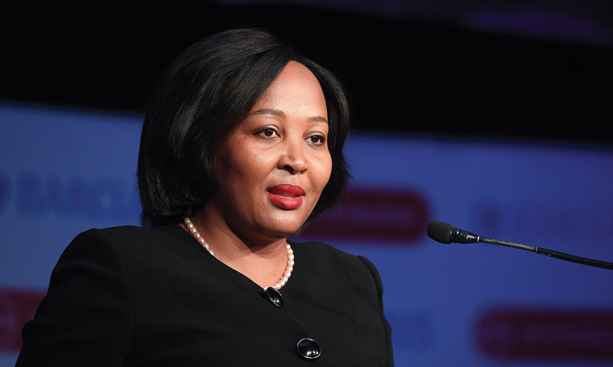The local financial service sector has been urged to fully embrace the financial technologies, which has great potential in fostering unique financial inclusion and shifting economic paradigm leading to a digitalised economy.
Botswana forms part of the countries that have adopted the Bali Fintech Congress Agenda, which considers the interaction between financial stability, financial inclusion and Fintech.
Bank of Botswana (BOB), in partnership with the International Monetary Fund (IMF), co-hosted the Bali Fintech Agenda conference in Gaborone that brought together financial experts to unpack the potential that Fintech could enhance in economic development.
The two-day conference was held under the theme ‘Balancing Fintech Opportunities and Risks: Implementing the “Bali Fintech Agenda’’.
Experts said Fintech plays a critical role in harnessing financial inclusion, opening of opportunities for a knowledge-based economy due to the digitalisation of economic sectors, courtesy of Fintech.
Barclays Bank of Botswana Managing Director, Keabetswe Pheko-Moshagane, regretted that the adoption of Fintech level still remains low across the local banking sector and other financial services providers.
She insists that banking sector should move away from the traditional means of offering services; and adapt to the ever changing financial service business which is digitally evolving.
“The world of the financial service is integrating into the modern technology which makes the business space highly competitive. So as the banks for us to survive, there is need to adopt solutions that come with fintechs,’’ she said.
Pheko-Moshagane dismissed the banks’ misconception of viewing the Fintechs solutions or digital developments as their competitors in providing service, a move which she attributed to low intake of Fintech.
In addition, she said Botswana has done quite well in developing vast innovations with regards to the mobile money banking solutions which is robust and successful.
The Minister of Finance and Economic Development, Kenneth Matambo, said he is hopeful that countries in the region will highly start appreciating the relevance of the Bali Agenda for the region, by aligning it to their development imperatives.
He said there are opportunities presented by the rapidly changing financial landscape propelled by advances in technology and innovation that the country can usefully harness.
Fintech market huge
Professor Njuguna Ndung’u, Executive Director, African Economic Research Consortium, indicated that Fintech places pool of market potential for Botswana to harness Fintech in pushing digital economy.
He revealed that this could be through developing forceful electronic payment ecosystems, hence making turning the country into a digital finance hub like its counterparts such as Kenya, which he said has made bold move in Fintech integration.
According to Prof Ndung’u, financial technologies market can be useful in developing tax payments platforms, revenue administration to minimize leakages, hence proposing that local tax body BURS can tap into the market.
However, it has been noted that the Fintechs also come up with risks such as cyber space crime in Africa, which normally leads to cross border money laundering; hence it is advisable to set up regulatory framework specific for guiding Fintech business operations.
e-Gov
One of the most discussed aspects is the resistance by the government to digitalise the public service delivery, moving from traditional paper work-based service provision.
Experts view this step to be a gateway to supporting the ailing private sector Fintech solution providers at the moment.
Advisor to Executive Director, World Bank, Martin Lindepere, said the government should digitalise the public service sector to improve efficiency in service delivery.
Sharing the story of how his country Estonia became a world class digital society, he revealed that 99.9% of the country’s public service has been digitalised; hence Botswana that aspires to be a high income status economy should reconfigure its public service.
“Botswana has a vast potential of harnessing the electronic governance, which will enhance efficiency of accessing services such as health, education online. As a result, the country can benchmark on how Estonia has evolved into a knowledge economy, courtesy of robust digitalised government sector,” he added.
